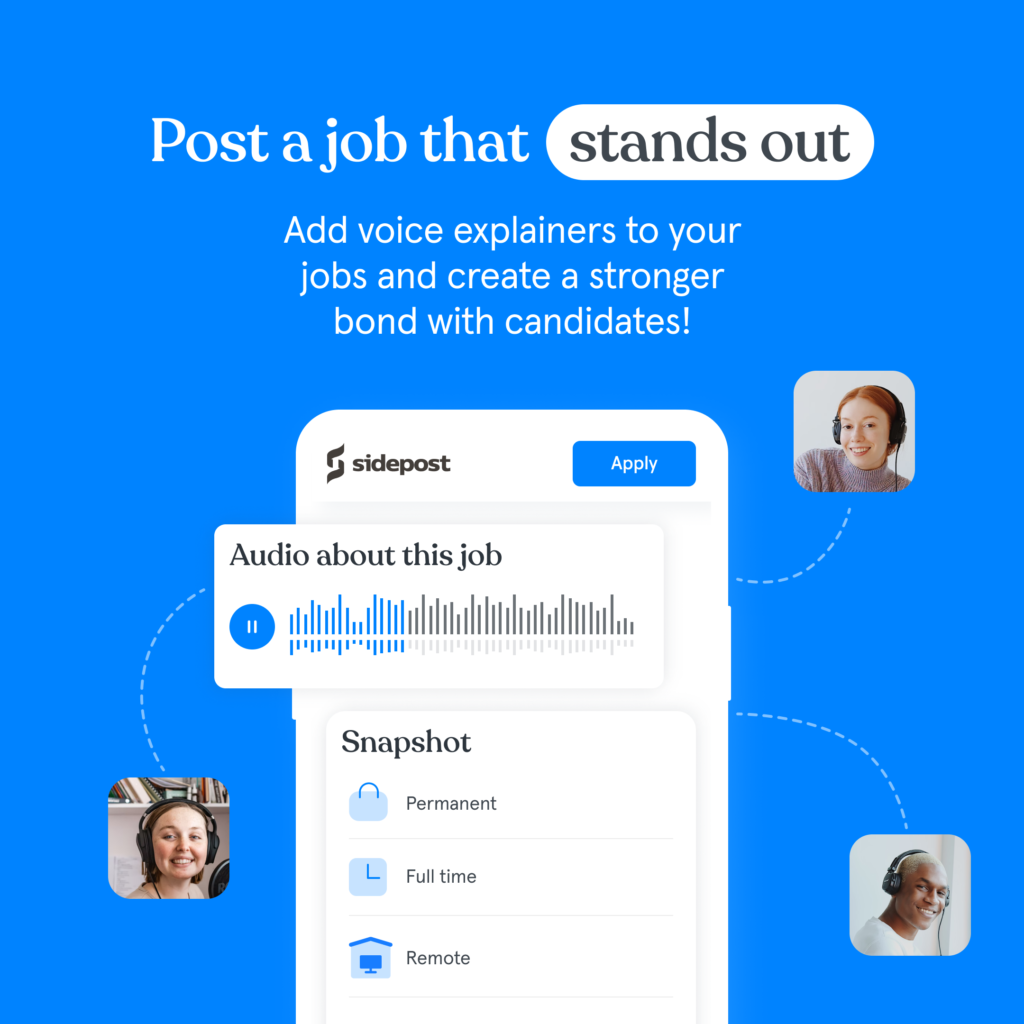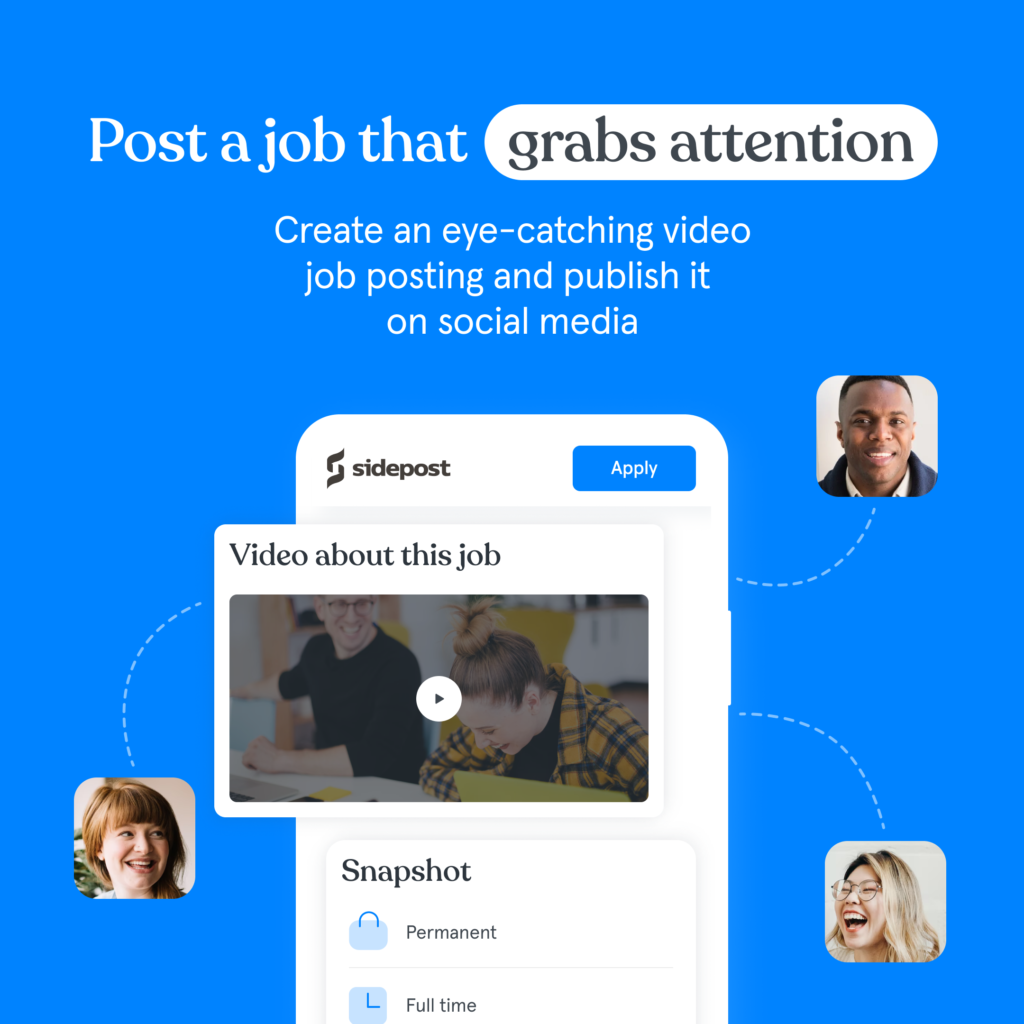
Frequently Asked Questions Recruiters Ask Candidates
A crucial part of the employee hiring process is asking the right interview questions. If this process is taken seriously, you will be able to determine if a candidate is the right fit and know if you are choosing a candidate that plans to be with you long-term.
Job postings alone will not attract you to the right candidate. That is why having a smart interview process is crucial to your company’s growth. When conducting interviews, it is essential to ask questions that will help determine if a candidate is a good fit to work with your company. Not only is it necessary to assess the candidate’s skill and experience, but you also want to ask questions that will allow you to see if they fit your company culture and plan to be with your company long-term.
To find out if a candidate is worth your time, you can first conduct a short screening interview virtually. This step provides the first impression of a candidate and can determine their level of interpersonal skills. After this process is completed, you can decide if the candidate has the right attitude, temperament, personality, general knowledge, and career goals to align with your company. From there, you can conduct a more extensive interview.
With so many candidates having access to professional career coaching services and mock interview experiences, knowing the best questions recruiters ask will aid in your ability to find the candidate with the right skills, not just the correct answers. As a recruiter, you will need to be just as prepared as the candidates you are meeting with. Knowing what questions a recruiter should ask will help you go from a large pool of potential candidates to finding the perfect fit.
Key Takeaways
- Job postings alone will not attract the top talent you are looking for; a smart interview will
- A mediocre interview will not provide you with the knowledge you need to choose the right candidate for your company
- Know what questions recruiters should ask during an interview
- Being prepared during the interview process is just as crucial for the interviewer as the interviewee
When conducting a smart interview, these are the top topics you should be asking questions about:
Previous Work Experience
Asking about a candidate’s past work experience will provide you insight into if they have the skills and qualifications necessary to fill your open position. You do not just want to see the position title on their resume, but also ask them how their past positions relate to the one they are applying for.
Questions include:
- How do your past work experiences and skill set make you a good fit for this position?
- What is the biggest challenge you have faced in your last position?
Responsibilities
Every position has slightly different roles associated with their job, even if the job title is the same. That is why a recruiter must ask questions about a candidate’s current positions and expectations in the workplace during the smart interview process.
Questions include:
- What does your day-to-day look like in your most recent job?
- What skills have you learned in your most recent job?
- What have you done to go above and beyond in the areas of your current role?
Personal Development
When hiring the top talent, you will want to know how open they are to personal growth. Especially while working virtually, you will want to know how adaptable and flexible a person is. Their ability and willingness to learn new methods, improve performance, and adapt to company culture will help you predict whether they will be sustainable in a long-term position.
Questions include:
- What goals do you have for your personal development?
- How do you react to feedback?
- How would this position impact your professional goals?
- What are your strengths and weaknesses?
Work Environment & Style
During a smart interview, you will want to ask questions that help determine if a candidate would successfully integrate into your office. With the increasing popularity of hybrid and fully remote settings, you will want to see their expectations in the workplace.
Questions include:
- What management style do you prefer?
- What was the best job that you had and why?
- In what work environment would you most likely succeed?
- What does your ideal workday look like?
- How have you handled a disagreement you have had in the past?
Time Management and Organization
Another factor you will want to assess is how a candidate responds under pressure and if a deadline is approaching. Every company has different demands and requirements for deadlines, and you will want to know if a candidate will excel or crumble under pressure.
You will also want to know if a candidate is organized. Hiring someone who has a messy work area and unorganized systems can lead to missed deadlines, forgotten tasks, and to-do’s that ever get done. Avoid this by asking the right questions.
Questions include:
- How do you manage your time with multiple projects?
- How do you prioritize tasks?
- What are your experiences with deadlines? Do you usually miss or meet them?
- Did you have deadlines that needed to be met in your past roles?
- How do you handle stress in the workplace?
Tell Me About A Time When ...
A job posting may attract people who have the skills you are looking for, but maybe not the experience you want. Asking questions in the format of “tell me about a time when…” will allow you to see what candidates can shine above the rest. A candidate’s failure to answer these questions may mean they would be a bad fit for the role you are hiring for.
Why Work With Us
Interviewees who have done their research will already understand your company values and mission.
Some people just apply to a job posting because they are desperate for work or are interested in their salary. Hiring someone who wants to be with your company and has the drive that fits the position can save you time and money during the onboarding process.
Questions include:
- Why do you want to work here?
- What made you apply to this position?
- What do you know about our company and the things we do?
- What about our company makes you feel you are a better fit over another candidate?
Salary Expectations
Before making a job posting, a company should know its salary limits for the specific position. It should be competitive and align with other similar roles within the organization.
Questions include:
- What salary are you looking for?
- What benefits do you expect?
- If your current employer offered to increase your salary, would you continue employment with them?
Knowing if a counteroffer could come from a candidate’s current company will also aid in your ability to be prepared to negotiate if you want the candidate and if they are likely to leave your position the moment they find a higher-paying job.
Questions Candidates Do Not Need To Answer
During a smart interview, be sure that you are asking appropriate questions. You never want a candidate to think “my interview was unethical.”
Topics to avoid include:
- Race, color, nationality
- Religious views
- Gender identity and sexual orientation
- Current marital status and number of children
- Family plans for the future (pregnancy status)
- Disability
- Age / genetic information
- Citizenship status
If these questions are asked in an interview, a candidate has every right to dismiss them and provide that information if necessary once hired.
Red Flags
As an interviewee, it can be hard to see if a candidate is genuinely interested in your role, even if the conversation is happening virtually.
Things to watch out for include:
- Mild interest
- Negative comments about a past employer
- Lack of information on your company
- Only interested in company benefits and salary
- Does not have work examples
- Confusing situational stories that do not add up
Be mindful that candidates may be nervous, but know that candidates may be trying to hide scenarios.
Tips For Candidates
As a candidate, preparing for an interview can be nerve-wracking.
To be best prepared, seek out opportunities and take advantage of:
- Mock interviews
- Professional career coaching services
- Research “what questions do recruiters ask”
- Practice answering smart interview questions
You may at some point feel like “my interview was horrible,” “my interview could have gone better,” or “I was not prepared for my interview,” so practicing the experience will aid in your ability to be confident in the process.
You are not the only person who applied to the job posting, so being professional and doing what you can to stand out will be essential during your time with the interviewer. Making a good impression, researching the company, and preparing your answers prior will increase your chances of being offered a position. Companies want to find the top talent that is the best fit, and you will want to find a job you were made for.
The Bottom Line
Conducting smart interviews will allow you to set apart okay candidates from your ideal candidates. You should be prepared to ask the right questions and know what answers you are looking for to see if a candidate will integrate well into your company culture and the position at hand and is an essential part of the hiring process.
Post a Job That Hires The Best Talent
- Want to stand out as an employer?
- Want to persuade and attract hot young top talent?
- Want to tell a compelling story about your job?
- Want to add video, photos and voice to your job posts?
If your answer to any of these questions is YES, try SidePost
Use SidePost as an online job description builder and talent marketing platform for your jobs
No more boring PDF, DOC or WORD files for your job descriptions anymore. Just use SidePost and share a link.
Create a beautiful job description online on SidePost, generate a link for your job and share it with candidates via email or social media. Save time, go viral and hire quickly.
60,000 X
Humans process visuals 60,000 times faster than text.
Posting a job with visual content such as video and images will make your job postings more engaging and help you share your brand, culture, and values. Visuals are content.




